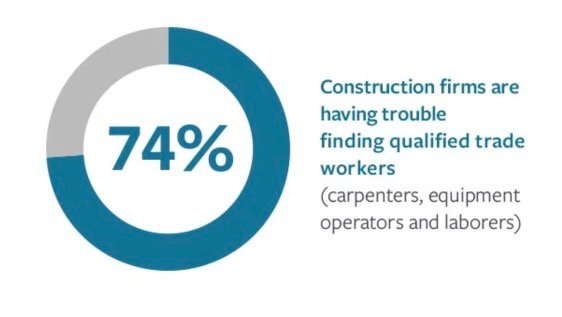Starting a new construction business is an exciting venture, but turning a great idea into a profitable company requires careful planning. Before you lay the first brick, you need to build a solid foundation for your business itself. Answering a few critical questions from the beginning can save you from major headaches down the road and set you on the path to long-term success in a competitive industry.
Why a Solid Business Plan is Your First Blueprint
A business plan is not just a document for securing loans; it is the essential blueprint for your entire operation. It forces you to think through every aspect of your company before you invest significant time and money. This plan is your roadmap to success, guiding every decision from funding to project specialization.
Your business plan will help you define your company’s mission and values, which should be the core of your brand. It’s where you’ll outline the specific area of construction you want to focus on, whether it’s residential remodeling, commercial projects, or a specialized trade.
More importantly, it gets your financial ducks in a row. A well-researched plan will include a realistic budget, profit projections, and a cash flow analysis for at least the first three years. This financial foresight helps you make smart decisions on big expenses, such as whether to rent or purchase heavy equipment and which construction management software provides the best return on investment.
Employees vs. Contractors: Building Your Ideal Team
One of the most immediate decisions you’ll face is how to build your workforce. The choice between hiring full-time employees and engaging independent contractors has significant implications for your budget, control, and legal responsibilities. Neither choice is universally better; the right one depends entirely on your business model and project types.
Employees offer stability and control. You can train them to your specific standards, ensure they are dedicated solely to your projects, and build a consistent company culture. However, this comes with the responsibility of payroll taxes, workers’ compensation, benefits, and adherence to strict labor laws.
Contractors provide flexibility and specialized expertise. They are often highly experienced and can be brought in for specific jobs, reducing your long-term financial commitment. This is ideal for short-term or highly specialized projects. The trade-off is less control over their methods and schedules, as they are their own boss.
To help you decide, here is a simple comparison:
| Factor | Employees | Contractors |
|---|---|---|
| Control | High (you direct their work and schedule) | Low (they control how the work is done) |
| Cost | Higher overhead (taxes, insurance, benefits) | Lower overhead (pay for work done, no benefits) |
| Training | You are responsible for all training | Arrive with their own skills and experience |
| Loyalty | Work exclusively for your company | Can work for multiple companies at once |
| Best For | Long-term, consistent work | Short-term, specialized projects |
How to Navigate the Construction Labor Shortage
It’s no secret that the construction industry is facing a significant shortage of skilled labor. According to sources like Travelers, even in rapidly growing markets, firms struggle to find enough qualified workers to meet demand. This shortage can directly impact your ability to complete projects on time and take on new work.
As a new business owner, you need a proactive strategy to attract and retain talent. Simply posting a job ad is not enough anymore. You need to make your company an attractive place to work.
Consider offering competitive wages and benefits, but also think beyond the paycheck. A positive and safe work environment, opportunities for training and career advancement, and a culture of respect can make a huge difference. Building relationships with local trade schools and community colleges can also create a pipeline of new talent for your business.
Embracing Technology: Your Secret Weapon for Success
The construction industry is rapidly evolving with technology, and falling behind is not an option. Integrating modern tech solutions can give your new business a significant competitive edge by improving efficiency, safety, and accuracy. You don’t need a massive budget to get started; many powerful tools are more accessible than ever.
For example, drones have become a game-changer for site surveys and project supervision. They offer a cost-effective way to get a bird’s-eye view of a job site, inspect hard-to-reach areas, and monitor progress without the expense of a helicopter.
Beyond high-flying tech, there are other practical tools that can make a daily impact. Wearable devices that monitor vital signs can help prevent overexertion and improve worker safety, reducing the risk of accidents and liability issues.
- Construction Management Software: Tools like Procore or BuilderTrend can help you manage schedules, budgets, and communication from a single platform.
- Building Information Modeling (BIM): 3D modeling software allows you to create detailed digital representations of your projects, helping to identify potential issues before construction begins.
- GPS Tracking: Installing GPS on vehicles and heavy equipment can optimize routes, track assets, and prevent theft.
Adopting the right technology from day one will streamline your operations and show potential clients that you are a forward-thinking and efficient company.
Frequently Asked Questions about Starting a Construction Business
What is the first step to starting a construction business?
The very first step is to create a comprehensive business plan. This document will be your guide for everything else, including securing funding, defining your services, and setting financial goals.
Should I rent or buy construction equipment when starting out?
For most new businesses, renting equipment is the smarter choice. It requires less upfront capital, eliminates maintenance and storage costs, and allows you to use the most up-to-date machinery for specific jobs.
How can a small construction business find skilled workers?
Focus on creating a great work environment with competitive pay. Build connections with local trade schools, offer apprenticeship programs, and use employee referrals to find reliable talent.
What are the biggest challenges for new construction businesses?
Common hurdles include managing unpredictable cash flow, finding and retaining skilled labor, navigating complex regulations and licensing, and securing the first few profitable projects to build a reputation.
How can technology help a small construction business?
Technology boosts efficiency and profitability. Project management software streamlines operations, drones make site surveys cheaper and safer, and accounting software simplifies financial tracking, giving you more time to focus on the actual construction work.









Leave a Comment